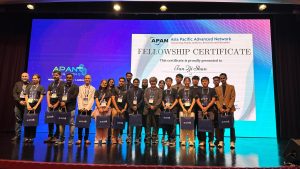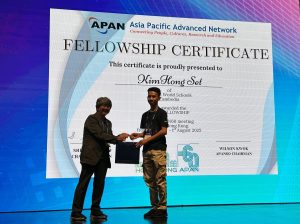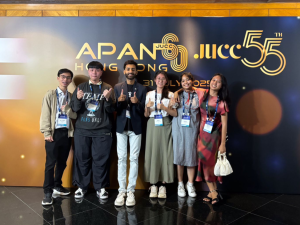When I received the news that I had been selected as a fellow for the APAN60-Hong Kong program, I felt both honored and inspired. For me, this was not just an academic recognition, but an opportunity to connect my research with a wider network of experts, policymakers, and innovators from across the Asia-Pacific. From the very first day, I was immersed in a dynamic environment where technology, sustainability, and resilience were not abstract concepts but shared goals. As part of the Disaster Mitigation Working Group, I presented my research on how nature-based solutions can serve as effective strategies for disaster prevention and climate resilience. The discussion that followed was rich and constructive, with contributions from scholars and practitioners representing diverse geographies and disciplines. Their perspectives deepened my understanding of how local realities and global strategies can converge in addressing complex environmental challenges.
One of the most memorable moments of the fellowship was standing on stage to receive the fellowship certificate, representing Japan as my current place of residence and Bangladesh as my home country. That moment encapsulated my academic journey—grounded in my identity, yet oriented toward global collaboration. I carried with me more than a certificate—I brought back a renewed sense of purpose. The fellowship reaffirmed my commitment to using research, dialogue, and partnerships to advance climate justice, resilience, and equitable development, both in the Global South and beyond.







